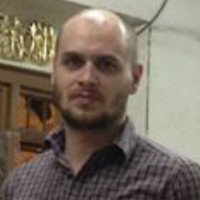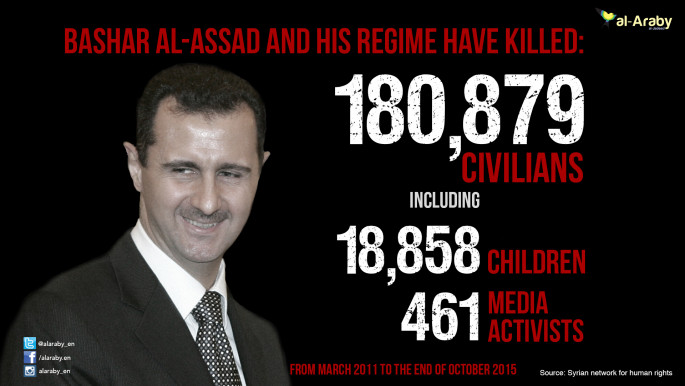
Assad says he is saving Syria and insults millions
The remarkable claim was made during an interview with Spanish newspaper El Pais in Damascus "amid heavy security".
In it, he spoke about Syria's five year war and ongoing international efforts to broker a peace deal to end the fighting.
But it was some of his more outlandish claims in the interview that have sparked the most attention.
"If Syria is safe and sound [in ten years' time], and I'm the one who saved his country - that's my job now, that's my duty," he told the Spanish newspaper.
"I don't care about being in power. For me, if the Syrian people want me to be in power, I will be. If they don’t want me, I can do nothing, I mean, I cannot help my country, so I have to leave right away."
Assad remained arrogantly defiant - and some would say delusional - throughout his conversation with Spanish reporters in the Syrian capital.
He denied that the government has besieged opposition regions, despite independent UN and NGO reports of starvation in blockaded regions such as Madaya.
"We never placed an embargo on any region in Syria. There's a difference between an embargo and the army surrounding a certain area because of the militants, and that's natural in such a security case or military case," the dictator said.
"The problem with those areas is that the militants themselves took the food and the basic needs of those people, the people there, and gave it to their militants or sold it to the people at very high prices."
 |
| [click to enlarge] |
Wild claims
The president also made another wild claim that Russian bombardments of Aleppo and other built-up opposition areas have resulted in no civilian deaths.
"We don’t have any evidence that the Russians attacked any civilian targets. They are very precise in their targets and they always attack, every day, the bases or the targets of the terrorists," Assad said.
Instead, he blamed the US for casualties from bombing.
"Actually, it's the Americans who did this, who killed many civilians in the northeastern part of Syria, not the Russians," he said.
"Not a single incident has happened regarding the civilians so far, because they don't attack in the cities; they attack mainly in the rural areas."
This obviously flies of the unimaginable suffering the people of Aleppo, Daraa, Damascus and Idlib have endured after years of bombing and shelling.
First, thousands died from Assad's routine barrel bombing of residential districts. Now civilian areas have been flattened by more intense Russian bombardments.
More than 60 health facilities assisted by Medicines Sans Frontiers have been destroyed in bombing, while there also appears to be deliberate campaign of hitting schools, bakeries and markets.
Analysts say that banned cluster bombs and other Russian explosives have killed over a thousand people - a quarter under the age of 16 according to the Syrian Observatory for Human Rights - and forced hundreds thousands from their homes.
| Read: Operation Cesar - Routine becomes nightmare in Syria's torture cells |
Engineered exile
Even in exile, Assad is determined to speak over the millions of Syrian voices decrying regime massacres, bombing and starvation sieges.
"The majority of the people who live in the area controlled by the terrorists have emigrated to the area under the control of the government," he said.
"So, if they want to flee from the government, why do they come to the government? This is not real."
Although some Syrians have moved to regime areas out of pure desperation, the vast majority of refugees are living in makeshift camps in rebel areas and over Syria's borders in Turkey, Lebanon and Jordan.
|
|
|
| YouTube: Issam Ali |
When questioned by Spanish interviewer about the [registered] five million Syrians living abroad, he said they would be welcome back to his cantons.
That is unless they were a "terrorist" or "killer", which according to Assad's classification includes anyone who has picked up a weapon.
"Some of [the refugees], and I think a good number of them, are government supporters who didn't leave because they’re afraid of the government," Assad claimed.
"But, as I said, because of the standards of living that have deteriorated drastically during the last few years."
This ignores the pervasive intelligence networks operating in regime territories and industrial-scale torture machinery employed by Damascus with a question mark over almost every Syrian.
Assad dismissed UN report of mass torture and killings in Syrian regime prisons, documented by a defector from the regime's military police named "Caesar".
He revealed 45,000 photographs of Syrians who died under torture and a recent UN report that the regime is guilty of "exterminating" detainees.
"That's based on what the Qataris made about a year ago or more, when they forged a report made of unverified pictures of injured people and unverified sources and sent it to the United Nations, and this is part of the propaganda against Syria."
Torture cells
If the deceased victims of Syria's torture chambers can't speak today, then thousands who have passed through the system can.
It was this stifling atmosphere of fear and suppression that sparked anti-regime protests in 2011.
Assad radicalised elements of the opposition by releasing thousands of jihadi suspects, and wiped out the remaining opposition that couldn't retreat to rebel areas or move abroad.
This set up the regime's simple black-and-white narrative of the war: that the secular Syrian government is holding back an extremist 'horde'.
It is a horror story based on half-truths and outright fabrications.
When questioned on opposition leaders arrested before and during the 2011 uprising, with no apparent shame Assad said they had all been released from prison "a long time ago".
 |
Not a single incident has happened regarding the civilians so far, because [Russia] don't attack in the cities. - Bashar al-Assad |
 |
"All of them. We don't have any of them. Before 2010, all of them left," he said.
"Including some of them who were terrorists, but they were sentenced for a few years, let's say five or whatever, and when the crisis started, they joined the terrorist groups again."
Proof of this, he said, was the killing of Jaish al-Islam leader Zahran Alloush in a besieged Damascus suburb.
"He was imprisoned for several years, because he was al-Qaeda-affiliated. When the crisis started, he formed his own terrorist group, and this group is one of those four that I mentioned that we consider terrorist groups."
However, he failed to present a convincing argument about the tens thousands activists, protesters and completely innocent men and women who disappeared after their arrests.
But Assad has helped answer some of the world's suspicions that the regime is to blame for the escalation of the conflict.







 Follow the Middle East's top stories in English at The New Arab on Google News
Follow the Middle East's top stories in English at The New Arab on Google News


